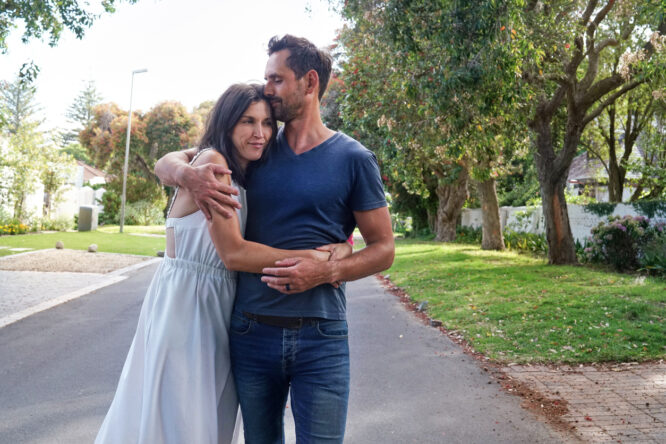We all get frustrated in relationships, but constant complaining, even if it feels justified, usually makes things worse.

It pushes people into defensiveness, closes down connection, and turns every small issue into a power struggle. The good news is, a lot of that tension can change just by changing how we say things. These phrases don’t sugarcoat how you feel—they just help you express it in a way that’s more likely to be heard. If you’re trying to grow a relationship that actually feels good to be in, try saying these instead of defaulting to complaints.
1. “I feel overwhelmed and could really use your help right now.”

This one lets you be honest about your stress without turning it into an attack. Instead of “You never help,” it puts the focus on what you need, not what they’ve done wrong. It also makes space for them to actually step in and support you—because they don’t have to defend themselves first. Most people want to help, they just need to feel safe doing it.
2. “Can we find a better way to divide things up?”

This is a team-based way of saying, “This isn’t working for me.” You’re not blaming—you’re inviting change. And that tone can completely change how the conversation plays out. It’s especially powerful if you bring a couple of ideas to the table. It shows you’ve been thinking about solutions, not just simmering in frustration.
3. “I miss feeling close to you—can we plan some time together?”

This replaces distance or snark with vulnerability. Instead of acting cold or withdrawn when you feel disconnected, you’re being upfront about wanting to reconnect. It tells your partner the closeness still matters to you, which makes it easier for them to respond with warmth instead of defensiveness.
4. “I’ve been holding in some stuff—I’d love to talk when we’ve both got a minute.”

Blindsiding someone with built-up complaints mid-stress never ends well. This gives them a heads-up and helps you both come into the conversation in a calmer place. It also makes it clear that you’re not here to explode—you’re here to be real, but respectful. That’s a game changer.
5. “It hurt my feelings when that happened. Can we talk about it?”

This isn’t about making them feel bad—it’s about naming your experience without wrapping it in blame. It keeps the focus on the impact, not the accusation. Most people are more willing to hear that something hurt you than to hear they “messed up again.” It opens the door to resolution.
6. “I’m not sure I’m being fair right now—can we come back to this later?”

This is emotional maturity in action. You’re not storming off, you’re just pressing pause so you don’t say something you’ll regret later. It also shows your partner that your goal is connection, not control. And honestly, most conversations go better when both people have time to breathe.
7. “Can we try to find a compromise on this?”

This is a far cry from demanding your way. It tells your partner you care about their needs too, and that you’re looking for a win-win, not a scorecard. Compromise doesn’t mean you’re weak—it means you’re invested enough in the relationship to meet in the middle sometimes.
8. “I’m not sure what I need yet, but I’m feeling a bit off.”

Instead of snapping or shutting down, this kind of honesty just lays it out. It gives your partner a chance to show up for you even when you’re still sorting through things. You’re not making them responsible for fixing it—you’re just letting them in. And that’s way healthier than bottling it all up or picking fights.
9. “I know this isn’t your fault—I just need to vent for a second.”

When you’re stressed and emotional, it’s easy to take it out on whoever’s closest. But this phrase clears the air and keeps them from feeling unfairly targeted. It also builds trust. It shows that even in hard moments, you’re trying to be mindful of how you unload what you’re carrying.
10. “I’ve been feeling a bit disconnected lately—how are you feeling about us?”

This turns a complaint into an invitation. It’s not about proving a point—it’s about checking in together. It also opens the door for them to share their side, which can bring up things neither of you realised you needed to talk about. They might be in the exact same frame of mind but didn’t know how to bring it up. Now you can iron things out together.
11. “I appreciate you doing that—it really helped.”

Positive feedback makes a massive difference. If you only ever speak up when something’s wrong, it can wear down your partner’s willingness to keep trying. Noticing the small good things—especially when you’re under stress—builds way more goodwill than you might expect.
12. “I know I’ve been stressed lately, and I’m trying to keep an eye on how it’s affecting us.”

This shows awareness without self-blame. You’re not apologising for being human—you’re just letting them know you care about how you show up in the relationship. Honestly, this kind of ownership makes people feel safer with you. It shows you’re in this together, not just reacting all the time.
13. “Can I be honest about something that’s been on my mind?”

This preps your partner to really listen instead of react. You’re framing it as honesty, not criticism, which changes the whole vibe of the conversation. Even if what you’re about to say is difficult, this tone makes it way more likely that it’ll lead to understanding, not conflict.
14. “Let’s figure out how we can both feel better about this.”

This is like a relationship reset button. Instead of trying to win, you’re trying to understand, and that makes you a team again. It tells your partner you care about how they feel too, and that you’re not here to “be right”—you’re here to make things work.
15. “I’m not mad—I just want to feel closer to you.”

This one cuts through so much noise. It brings the conversation back to what actually matters: wanting to feel good together. Even in the middle of tension, this kind of vulnerability can instantly soften things and remind you both what you’re building.
16. “Thanks for listening—I know I can be a lot when I’m stressed.”

Acknowledging your impact without shaming yourself shows real growth. It makes your partner feel appreciated for showing up, and keeps communication open. It’s a small phrase, but it signals that you’re self-aware and still trying. Honestly, that matters more than getting it perfect.




